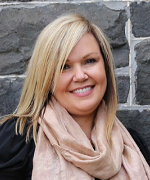AIA Australia has released new data that shows members of its wellbeing program that use Apple Watch have increased their physical activity by up to 51 percent in a year.
A statement from the insurer explains that since July 2020, members of the AIA Vitality program have had the opportunity to earn an Apple Watch by reaching weekly physical activity targets.
It says members who choose to take up the benefit receive the Apple Watch upfront and can then reduce their monthly payments to zero by meeting physical activity goals.

“AIA Australia has found that the rich health and wellbeing insights Apple Watch users gain, combined with the behavioural science principle of “loss aversion” that has been utilised in the design of the benefit, has led to significant improvements in physical activity,” the statement notes.
It says that when comparing physical activity in 2019 and 2020 for those who took up AIA Vitality’s Apple Watch benefit last year, AIA Australia has seen:
- Activity increase by 35 per cent on average
- The age group with the most significant improvement in physical activity was those 50 years and older, who saw a 51 per cent increase
The statement adds that AIA Australia’s results reflect an earlier landmark RAND Europe study of more than 400,000 Vitality members in the United Kingdom, United States of America and South Africa.
The insurer notes that the Apple Watch benefit is an expansion of AIA Vitality’s Active Benefits program, which uses behavioural science, personalised goal setting and micro-rewards to create positive habits around physical activity.
“Since its launch, the Active Benefits program has seen a significant and sustained increase in activity levels among members.”
CEO and Managing Director of AIA Australia and New Zealand, Damien Mu, says that the data highlighted the role that the right tools and engagement can play in helping people live healthier lives.
“We believe strongly in the research and science-backed approach of our AIA Vitality program. Higher engagement in physical activity is directly correlated to better health outcomes, and these results show how powerful the use of Apple Watch can be when combined with a program like ours, to motivate and engage Australians to take small steps to improve their health and wellbeing.”
Partnership with Australasian Menopause Society to Combat Frequent Misdiagnosis
Meanwhile AIA Australia has also partnered with the Australasian Menopause Society, a group of doctors and allied health professionals which is driving awareness about the commonly overlooked life stage of menopause.
In a statement the insurer says that in Australia there are two million women who have recently gone through menopause and approximately 80,000 women move into the postmenopausal stage each year.

“Perimenopausal (women transitioning to menopause) and menopausal females make up approximately 40 percent of all health care visits in Australia. There can be a lack of understanding about the symptoms of menopause, which are often diagnosed as predominately mental health-related and therefore not managed optimally.”
The statement says that AIA Australia’s income protection claim data demonstrates that women in the 45-55 age bracket are 50 percent more likely to experience depression or anxiety than men.
“Concerned about this statistic, the insurer believes that there is a significant need for increased education and access to evidence-based information about menopause, to ensure that the correct diagnosis is reached; allowing for better quality of life for patients and reduced burden on the health care system,” AIA says.
AIA Australia Chief Shared Value and Marketing Officer, Stephanie Phillips says that AIA has “…a strong belief in the importance of early intervention so that our customers get the right treatment, before their condition worsens. We’re pleased to be working with the Australasian Menopause Society so we can empower women experiencing menopause to know that they are not alone and there is a wide range of support available if they need it.”



